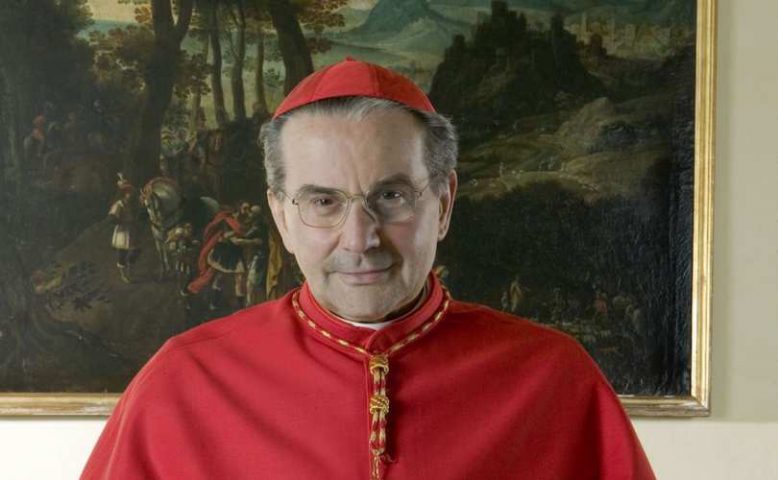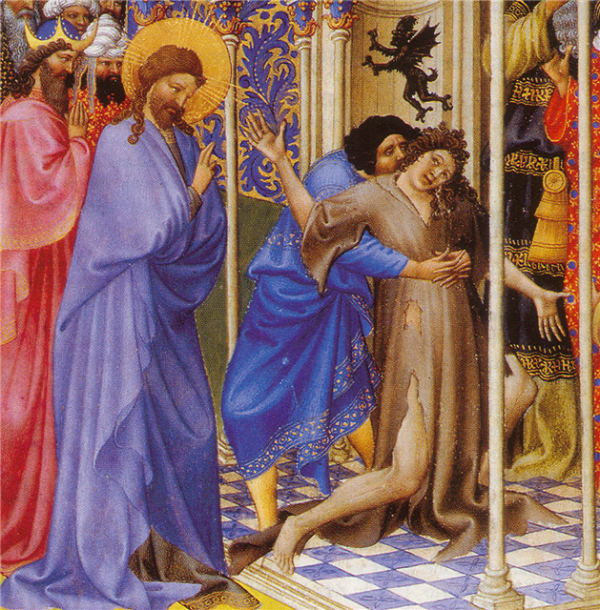By Pete Baklinski, LifeSiteNews, September 12, 2017
 A priest and personal friend of the late Cardinal Carlo Caffarra revealed that just days before death, the Cardinal shed tears over the confusion in the Catholic Church under Pope Francis while stating his unshakeable faith in the Lord who he said would not abandon His Church.
A priest and personal friend of the late Cardinal Carlo Caffarra revealed that just days before death, the Cardinal shed tears over the confusion in the Catholic Church under Pope Francis while stating his unshakeable faith in the Lord who he said would not abandon His Church.
Italian journalist Antonio Socci related the priest’s story on his blog, published in translation at OnePeterFive.
A priest confided to me that in the past few days, he went to tell the Cardinal of his distress over the disasters that he endures in the Church every day, mentioning some incidents to him.
The cardinal burst into tears, saying:
“The Lord will not abandon His Church. There were twelve apostles, so the Lord will start again with a few. Imagine the suffering of Saint Athanasius, who was left alone to defend the truth for the love of Christ, of the Church and of men. We must have faith, hope and fortitude.”
The priest related to Socci that the Cardinal was “very sorrowful, but he conveyed to me so much courage and love for the Church.”
Socci explained that Caffarra’s reference to St. Athanasius was significant given that it was almost alone that Bishop Athanasius defended the truth of the Catholic faith against the Arian heresy in the early fourth century.
Cardinal Caffarra was one of the four Cardinals who sent Pope Francis the dubia asking for clarity on the Pope’s 2016 Exhortation Amoris Laetitia. He died September 6 at the age of 79.
A few months before he died, Caffarra begged Pope Francis in a letter made public in June to end the “confusion and disorientation” within the Church after the publication of the Pope’s Exhortation.
But Pope Francis never answered the Cardinal’s April 25 plea, just as he never answered the September 19, 2016 plea of Caffarra along with three other cardinals to confirm that his Exhortation conformed to perennial Catholic teaching.
The Cardinal clearly outlined the devastation the Exhortation was already causing in the Church in the first year of its publication.
“During this time, interpretations of some objectively ambiguous passages of the post-synodal Exhortation have publicly been given that are not divergent from but contrary to the permanent Magisterium of the Church,” he wrote.
“Despite the fact that the Prefect of the Doctrine of the Faith has repeatedly declared that the doctrine of the Church has not changed, numerous statements have appeared from individual Bishops, Cardinals, and even Episcopal Conferences, approving what the Magisterium of the Church has never approved,” he added.
Caffarra wrote that it was “painful” for him to witness the Exhortation’s effect upon the Church.
“Not only access to the Holy Eucharist for those who objectively and publicly live in a situation of grave sin, and intend to remain in it, but also a conception of moral conscience contrary to the Tradition of the Church,” he wrote.
“And so it is happening — how painful it is to see this! — that what is sin in Poland is good in Germany, that what is prohibited in the archdiocese of Philadelphia is permitted in Malta,” he added.
Socci suspects that along with the illness Caffarra “died of a broken heart.”



 A priest and personal friend of the late Cardinal Carlo Caffarra revealed that just days before death, the Cardinal shed tears over the confusion in the Catholic Church under Pope Francis while stating his unshakeable faith in the Lord who he said would not abandon His Church.
A priest and personal friend of the late Cardinal Carlo Caffarra revealed that just days before death, the Cardinal shed tears over the confusion in the Catholic Church under Pope Francis while stating his unshakeable faith in the Lord who he said would not abandon His Church.



